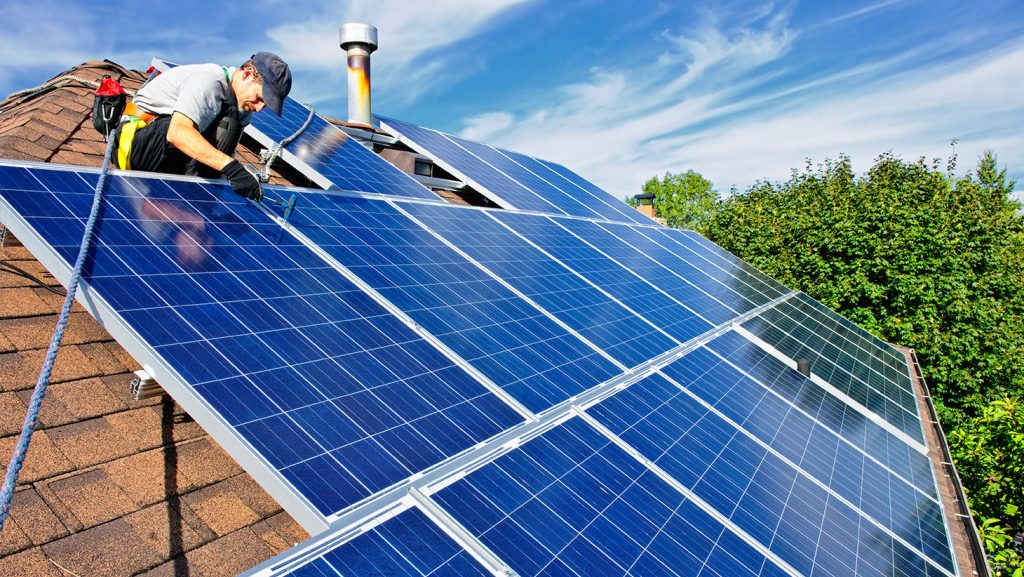Rooftop Solar Myths

Let’s bust some myths about rooftop solar.
1. Solar panels can be put on any home.
There are several factors that go into deciding if a rooftop solar system is right for your home. The direction your home faces, whether there are trees shading your home and whether your own or rent your home are all factors to consider. Some homeowners’ associations have covenants prohibiting solar panels.
The National Renewable Energy Laboratory estimates that only about 25 percent of homes are suitable for rooftop solar systems.
2. I’ll make lots of money selling power back to the utility.
Sometimes a rooftop solar system generates more power than the home uses. Walton EMC will pay solar producers the same amount for their power that we pay other wholesale energy providers (this is called avoided cost). It doesn’t make sense for our cooperative to pay more than the prevailing wholesale rate for the power we buy.
Generally, this will be less than half of our retail rate. When you talk to a solar installer, make sure they’re using avoided costs in their payback calculations, not our full retail rate.
3. I’ll eliminate my energy bill.
Unless you install a large battery storage system, you’ll still need power from our grid during the night or when it’s cloudy.
4. I can totally disconnect from the power grid.
While this is technically possible, it’s not practical. Storage technology is prohibitively expensive. You’ll also have to install three times as many panels to supply energy during the day and also make and store power for use after the sun goes down.
5. Having a solar system means I’ll have power during an outage.
If you want your home to be connected to Walton EMC’s grid, the law requires a device to automatically disconnect your solar system from our grid if the power goes out. That’s so your solar system won’t send power back to the grid during an outage and electrocute our linemen or someone who inadvertently touches a power line that’s on the ground.
Because our grid and your solar system are connected so you can sell power back to the utility, this safety measure is a must.
6. The system will pay for itself quickly.
While that may be true in places with extreme electric costs, like California or Hawaii, the payback is usually more like 20 to 25 years with Walton EMC’s favorable electric rates. By then, it may be time to upgrade or replace the system altogether.
Check out our Rooftop Solar Decision Tool to get an idea of what your payback may be. (Coming soon.)
7. Once I get my system installed, there are no more costs.
As with any other home system, there are always ongoing operation and maintenance costs. The panels will need to be cleaned from time to time. Panels may be damaged in a severe storm. An inverter could fail and need replacement.
If your roof is more than 10 years old, you’ll have a big expense when it comes time to replace your roof. The solar system will have to be removed and then reinstalled to facilitate the roofing process.
With all the penetrations from fasteners used to install the system, you may have roof leaks from time to time.
Be sure to check with your insurance agent to see if solar panels are covered in your homeowner’s policy.
Contact Us
Call (770) 267.2505 to speak to a Customer Care Representative from Monday through Friday, 7 a.m. – 7 p.m.